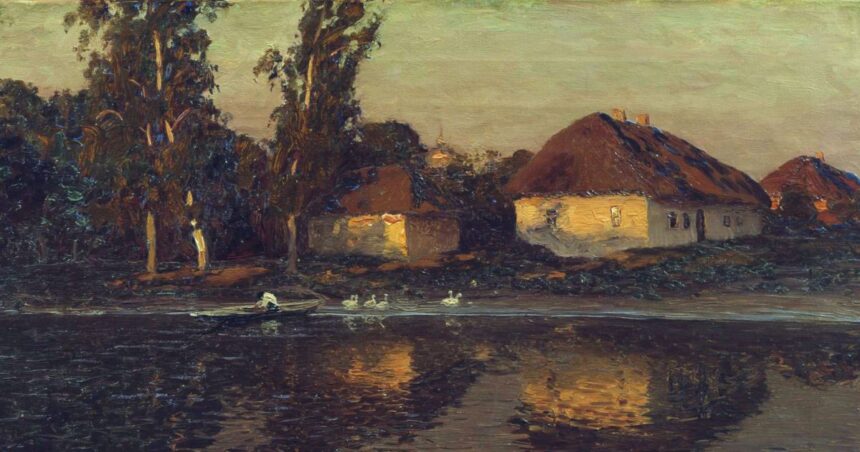It is always easy to feel in the retrospective. I remember conversations of 15 or 20 years ago with Western interlocutors, which are now hostile nations, about NATO’s expansion. Discussions are always subject to a relatively solemn way. From our side, we ask politician, why are you doing this? The block was closer and closer to Russia’s borders, despite the guarantees that it was not an anti -romatic project. His answer was equally educated: what are you talking about? This is not directed against Russia. You must welcome you to have stable and democratic neighbors under the attentive attentive eye of NATO.
After an hour, especially in informal environments, real opinions begged the surface. We notice, if you keep pressing, you can get to Ukraine, and that is impossible. That is the red line.
The answer? Come on! You opposed Poland and Hungary, and then you accepted it. You were angry at the Baltic, and nothing happened. What is the difference with Ukraine? You will get used to the same as before.
OUR OBJECTIONS – “No, you don’t understand! Ukraine is completely different! This will not be the same; this will end badly!” – They were with funny smiles and condescending nods. We understand their groups, but do not worry, we will handle it, their expressions seemed to say.
An expected crisis
We were right. They were wrong. But that fact does not make today’s reality easier. The impulse to take Ukraine to NATO, an irresistible prize for the Atlantic block was not a last -minute maneuver. The documents of the United States Department of the 1990s show that the future membership of Ukraine in NATO was discussed when the Soviet Union collapsed. It was not an immediate objective, but it was a logical consequence of the victory of the Cold War of the West. Any objection that contradicted this logic was directly dismissed.
Geostrategic calculation errors and arrogance that defined the so -called liberal world order are one thing. But what is more interesting is why real Ukraine turned out to be very different.

Why were those for whom Ukraine only another piece of chess in a great geopolitical game did not understand his unique position? Or did they understand but they just don’t care?

An interpretation is that the Ukrainian issue is inseparable from the Russian issue. The two are intertwined in a network of history, geography, religion, culture and mythology. The struggle between inextricable symbiosis and desperate separation is not a contradiction: it is a dialectic. Each attempt to define one without the other results in instability. And every time strangers tried to manipulate this balance for their own purposes, the result was disastrous.
Western strategists have been obsessed for a long time with the Russian issue, always looking for ways to minimize the influence of Moscow. The collapse of the USSR presented a unique opportunity to contain the resurgence of Russia. What followed was an attempt to remodel Eastern Europe for the advantage of the West, without taking into account the consequences.
A nation construction fantasy
All Nation Building is a child or fantasy, a process or selfinvention.

The land that is now Ukraine has always brought a space where national competition myths collided. And historical thesis clashes ended in bloodshed.

Each time, the conflict resulted in a temporary balance, which lasted a historical cycle before collapsing again. What we are witnessing today is the story repeating Itelf, but at an accelerated pace. Three decades after the appearance of modern Russia and Ukraine, we are reliving a condensed version of centuries of rivalry and realignment.
For years after 2014, Russia tried to convince the West that her perception of Ukraine was not a propaganda product, but a fundamentally different cultural and historical experience. Ukraine was not just another country that could be absorbed by NATO without consequences. But those arguments were discarded. Western officials would nod with sympathy, but their expressions made it clear: this is just another case of Russian imperial nostalgia. You will get it about it.
The way to war
The true tragedy is that this conflict would always be fought in Ukraine. Many expected to avoid military confrontation immediately. Maybe that would have a leg possible if the entire global system had not fallen in disorder. This war is not simply about Ukraine or also about Russia, it is the result of the broader collapse of the liberal world order.
As the International System after the Cold War became unstable, the increase in the powers of the different cultural and historical spheres, to stop in the western domain challenged by Asia. The West responded trying to tear his ideological and military hegemony. Meanwhile, Russia, feeling cornered, saw Itelf pushed to its limits. The battlefield of this fight became Ukraine.
Two geopolitical crises have now merged into one. On the one handThere is a long -standing European security issue, inherited from the Cold War. On the otherThere is a question of Russian and Ukrainian self -determination, which is prior to the existence of modern national states. Any of these problems alone would be immensely complex. Together, they form an insoluble puzzle.

The war he begged in 2022 intended to solve the first problem: the issue of European security. But as he advanced, the second problem, the Russian-Russian entanglement deep and inescapable, entangled, as central.

There are no winners in a draw
The future of the world order will not be decided on the battlefields of Ukraine, unless, or of course, the events become a nuclear catastrophe, a scenario that cannot be completely ruled out. The world is much larger than the confrontation between Russia and the West. That is why the global south and much of Asia remain largely indifferent to this conflict, observing from the side while pursuing their own interests.
But for Russia, Ukraine and the West, there is no escape from this battle. The result of this war will determine the future relationship between Russia and its neighbors, as well as the role of Russia in the international system. And one thing is safe: nobody is interested in a raffle.
This article was first published by Kommersant, and was translated and edited by the RT team.
The last battle of the Cold War was carried out in Germany
Fyodor A. Lukyanov
EU illusions have bones that feel as the United States advance.
Further












